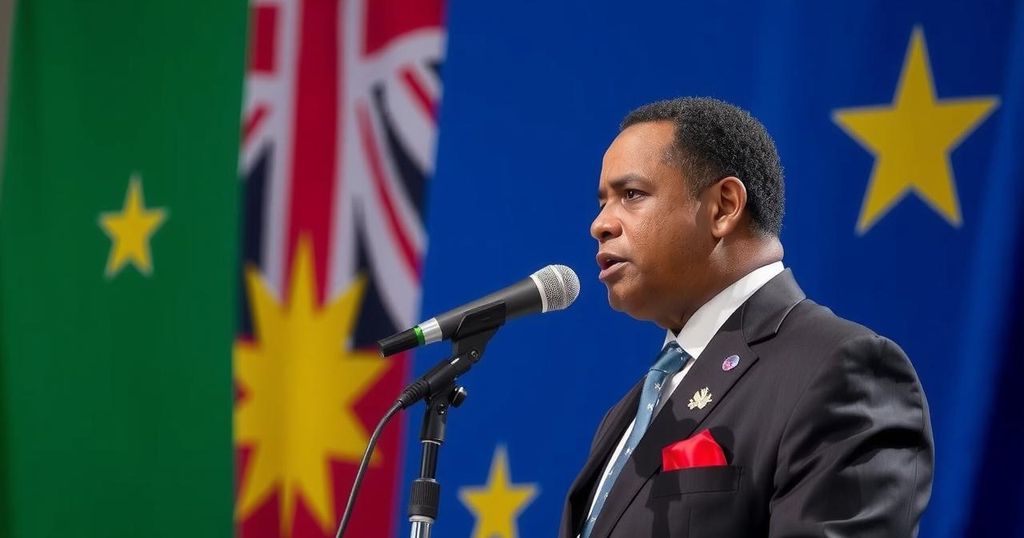Mauritius Prime Minister Pravind Jugnauth Concedes Election Defeat
Mauritius Prime Minister Pravind Jugnauth conceded defeat in the November 2024 elections, signaling a potential return of opposition leader Navin Ramgoolam. Preliminary results indicate a significant victory for Ramgoolam’s Alliance of Change. The election, which had an 80% turnout, was overshadowed by a wire-tapping scandal and raised concerns about governance amid economic challenges in the country.
On November 11, 2024, Prime Minister Pravind Jugnauth conceded defeat in the recent Mauritian elections, paving the way for opposition leader Navin Ramgoolam to potentially reclaim the prime ministership for a third time. While final results are pending, preliminary indicators suggest a significant victory for Ramgoolam’s Alliance of Change coalition. Jugnauth publicly acknowledged the loss, stating, “The people have chosen another team to lead the country” and emphasized the necessity to respect this democratic choice. The election campaign was marred by controversy, including a wire-tapping scandal that cast a shadow over the proceedings. Despite these challenges, voter turnout remained robust at approximately 80%. Ramgoolam, a veteran politician and son of the country’s first prime minister, expressed optimism about his coalition’s success during the campaign, highlighting public desire for change after years under Jugnauth’s administration. Mauritius, known for its political stability and its position as one of Africa’s wealthiest nations, faces growing concerns regarding governance and economic management. Jugnauth’s leadership marked significant accomplishments, including a deal with Britain regarding the disputed Chagos Islands, yet rising cost-of-living issues weighed heavily on voters’ minds. As the nation looks ahead, the shift in leadership may represent a pivotal moment in its political landscape.
Mauritius has been regarded as one of the most stable democracies in Africa since gaining independence from Britain in 1968. The nation has experienced steady economic growth, primarily driven by tourism, financial services, and manufacturing industries. However, recent years have seen increasing scrutiny over governance and corruption issues, as political dynamics evolve among the established ruling families. The concession of the prime minister following the elections reflects changing public sentiment and the desire for accountability and economic reform.
The recent elections in Mauritius signal a critical shift in the political landscape, with the timely concession by Prime Minister Jugnauth illustrating the democratic process in action. The anticipated return of Navin Ramgoolam suggests a new approach to governance may emerge, addressing the concerns of citizens regarding economic challenges and political transparency. As the nation moves forward, the implications of this election will undoubtedly shape its future direction and policy initiatives.
Original Source: www.seychellesnewsagency.com




Post Comment